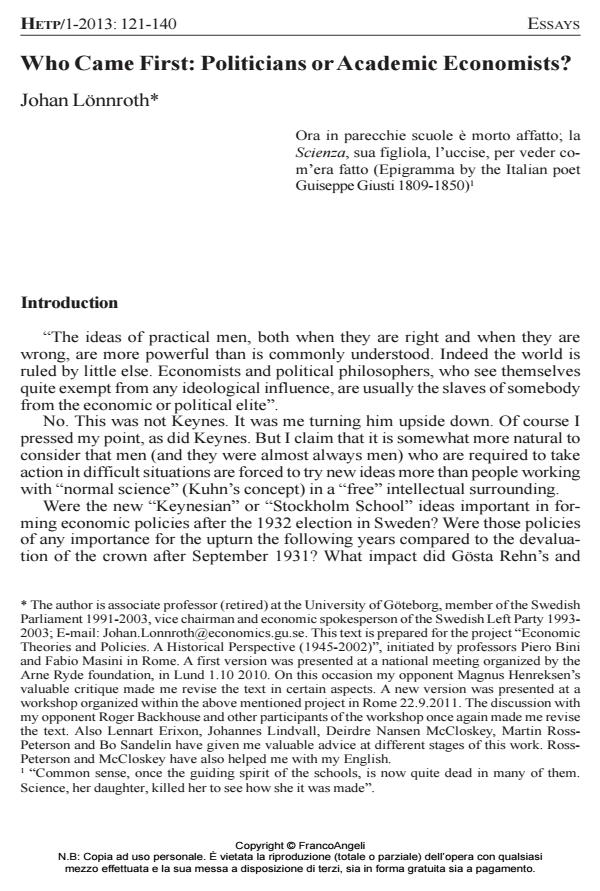Who Came First: Politicians or Academic Economists?
Journal title HISTORY OF ECONOMIC THOUGHT AND POLICY
Author/s Johan Lonnroth
Publishing Year 2013 Issue 2013/1
Language Italian Pages 20 P. 121-140 File size 111 KB
DOI 10.3280/SPE2013-001007
DOI is like a bar code for intellectual property: to have more infomation
click here
Below, you can see the article first page
If you want to buy this article in PDF format, you can do it, following the instructions to buy download credits

FrancoAngeli is member of Publishers International Linking Association, Inc (PILA), a not-for-profit association which run the CrossRef service enabling links to and from online scholarly content.
In this text an analysis is presented concerning who were first to form and accept new macroeconomic policy ideas in Sweden: economic politicians or professional economists. Those ideas were later to be accepted in international mainstream economics. Four paradigmatic shifts, all of them connected to economic - unemployment and/or inflation - crises, are studied: 1) The so called New Economics in the 1930s; 2) the forming of the Rehn & Meidner model and its implementation in the 1940s to 1960s; 3) the gradual shift from Keynesianism to monetarism and norm based theory during the last three decades of the 20th century; 4) the effects on economic thinking of the crisis in 2008/09. The result is that in cases 1, 2 and 4 initiatives to change policies rather came from politicians than from academic professional economists. In case 3 the result is more uncertain.
Keywords: Sweden, politicians, economists, ideas
Jel codes: A11, B22
Johan Lonnroth, Who Came First: Politicians or Academic Economists? in "HISTORY OF ECONOMIC THOUGHT AND POLICY" 1/2013, pp 121-140, DOI: 10.3280/SPE2013-001007